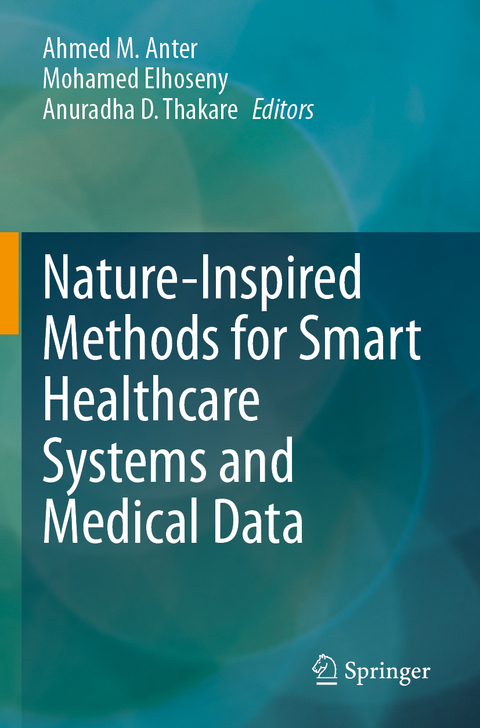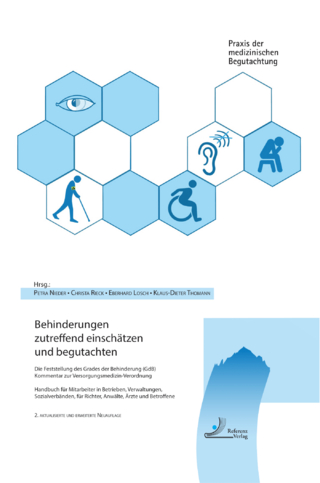
Nature-Inspired Methods for Smart Healthcare Systems and Medical Data
Springer International Publishing (Verlag)
978-3-031-45954-2 (ISBN)
This book aims to gather high-quality research papers on developing theories, frameworks, architectures, and algorithms for solving complex challenges in smart healthcare applications for real industry use. It explores the recent theoretical and practical applications of metaheuristics and optimization in various smart healthcare contexts. The book also discusses the capability of optimization techniques to obtain optimal parameters in ML and DL technologies. It provides an open platform for academics and engineers to share their unique ideas and investigate the potential convergence of existing systems and advanced metaheuristic algorithms. The book's outcome will enable decision-makers and practitioners to select suitable optimization approaches for scheduling patients in crowded environments with minimized human errors.
The healthcare system aims to improve the lives of disabled, elderly, sick individuals, and children. IoT-based systems simplify decision-making and task automation, offering an automated foundation. Nature-inspired metaheuristics and mining algorithms are crucial for healthcare applications, reducing costs, increasing efficiency, enabling accurate data analysis, and enhancing patient care. Metaheuristics improve algorithm performance and address challenges in data mining and ML, making them essential in healthcare research. Real-time IoT-based healthcare systems can be modeled using an IoT-based metaheuristic approach to generate optimal solutions.
Metaheuristics are powerful technologies for optimization problems in healthcare systems. They balance exact methods, which guarantee optimal solutions but require significant computational resources, with fast but low-quality greedy methods. Metaheuristic algorithms find better solutions while minimizing computational time. The scientific community is increasingly interested in metaheuristics, incorporating techniques from AI, operations research, and soft computing. New metaheuristicsoffer efficient ways to address optimization problems and tackle unsolved challenges. They can be parameterized to control performance and adjust the trade-off between solution quality and resource utilization. Metaheuristics manage the trade-off between performance and solution quality, making them highly applicable to real-time applications with pragmatic objectives.
Dr. Ahmed M. Anter is an Associate Professor of Computer Science at the Computer Science and Information Technology (CSIT), Egypt-Japan University of Science and Technology (E-JUST), Alexandria, Egypt. Anter is also with the Computers and Artificial Intelligence, Beni-suef University, Egypt. Anter received M.Sc. and Ph.D. degrees in computer science from the Faculty of Computer Science and Information Systems, Mansoura University, in 2010 and 2016, respectively. From2006 to 2010, he was a team leader of software development at CITC, Mansoura University, and from 2011 to 2014, he was a lecturer at the Faculty of Computer Science and Information Systems, Jazan University, Saudi Arabia. Also, Anter joined Shenzhen University as a post-doctoral fellow with the School of Biomedical Engineering, China, from 2018-2021. He has a good publication record with over 70 scientific research publications and serves as a reviewer for various international journals and conferences. Also, Anter serves as academic editor for prestigious journals. His main research interests include pattern recognition and intelligent systems, Human Computer Brain, Computational Neuroscience, machine learning, medical image processing, meta-heuristics, optimization, neuroscience, and fuzzy systems.Dr. Mohamed Elhoseny is an Associate Professor at the University of Sharjah, UAE. Dr. Elhoseny is an ACM Distinguished Speaker and IEEE Senior Member. His research interests include Smart Cities, Network Security, Artificial Intelligence, Internet of Things, and Intelligent Systems. Dr. Elhoseny is the founder and the Editor-in-Chief of IJSSTA journal published by IGI Global. Also, he is an Associate Editor at several Q1 journals such as IEEE Access, Scientific Reports, IEEE Future Directions, Remote Sensing, International Journal of E-services and Mobile Applications and Human-centric Computing and Information Sciences. Moreover, he served as the co-chair, the publication chair, the program chair, and atrack chair for several international conferences published by recognized publishers such as IEEE and Springer. Dr. Elhoseny is the Editor-in-Chief of The Sensors Communication for Urban Intelligence CRC Press-Taylor& Francis Book Series, and the Editor-in-Chief of The Distributed Sensing and Intelligent Systems CRC Press-Taylor& Francis Book Series.
Prof. Anuradha Thakare is a Professor in Department of Computer Engineering in Pimpri Chinchwad College of Engineering, Pune India. Anuradha received her Ph.D in Computer Science and Engineering from SGB Amravati University and M.E. degree in Computer Engineering from Savitribai Phule Pune University. She is serving for education and research from last 23 years. Her area of research is Evolutionary Computing, Artificial Intelligence, Machine Learning, Biomedical Engineering, Healthcare Analytics, High Performance Computing etc. She published 100+ research papers in reputed Journals and Conferences with indexing in Scopus, SCI, SCIE, Web of Science, ACM, Pubmed etc. She has authored and edited six books published by CRC Taylor & Francis, IGI Global, Wiley etc. She received Research grants from AICTE-AQIS, QIP-SPPU, BCUD-SPPU Pune, Maharashtra State Commission for Women and National Commission for Women. She worked as reviewer for Journal of International Blood Research, IEEE transactions and other Scopus indexed Journals. Anuradha is PhD guide in Computer Engineering in SPPU, Pune. She has been a General Chair of IEEE International Conference ICCUBEA 2018 and Advisory member for International Conferences. Delivered 25+ expert talks on Machine Learning, Evolutionary Algorithms, Outcome Based Education etc. she worked with industries like DRDO, NCL etc. for research projects. She is working as Subject Chairman for various Computer Engineering subjects under Savitribai Phule Pune University (SPPU). She contributed for SPPU syllabus Content designing and revision.
Chapter. 1. A review of methods employed for forensic human identification.- Chapter. 2. AI based Medicine Intake Tracker.- Chapter. 3. Analysis of Genetic Mutations using Nature-Inspired Optimization Methods and Classification Approach.- Chapter. 4. Applications of Blockchain: A Healthcare Use Case.- Chapter. 5. Comprehensive Methodology of Contact Tracing Techniques to Reduce Pandemic Infectious Diseases Spread.- Chapter. 6. High-impact applications of IoT system-based metaheuristics.- Chapter. 7. IoT-based eHealth solutions for aging with special emphasis on aging-related inflammatory diseases: prospects and challenges.- Chapter. 8. Leveraging Meta-Heuristics in Improving Health Care Delivery: A Comprehensive Overview.- Chapter. 9. Metaheuristics algorithms for complex disease prediction.- Chapter. 10. Printed rGO-based temperature sensor for wireless body area network applications.- Chapter. 11. Recent advanced in healthcare data privacy techniques.- Chapter. 12. The ability of the CFD approach to investigate the fluid and wall hemodynamics of cerebral stenosis and aneurysm.-
| Erscheinungsdatum | 04.12.2024 |
|---|---|
| Zusatzinfo | XXIII, 250 p. 100 illus., 62 illus. in color. |
| Verlagsort | Cham |
| Sprache | englisch |
| Maße | 155 x 235 mm |
| Themenwelt | Medizin / Pharmazie |
| Technik | |
| Schlagworte | Android-based Application • Artificial Intelligence (AI) • Big Data • Blockchain • Cloud • Covid-19 • Data Mining • Decision-Making • Deep learning • EEG-based Identification • Feature Selection • Forensic • Healthcare • machine learning • Metaheuristics • Nature Inspired Methods • Optimization, Internet of Things (IoT) • Personalized medicine • privacy preserving • Wireless Body Area Network (WBAN) |
| ISBN-10 | 3-031-45954-7 / 3031459547 |
| ISBN-13 | 978-3-031-45954-2 / 9783031459542 |
| Zustand | Neuware |
| Informationen gemäß Produktsicherheitsverordnung (GPSR) | |
| Haben Sie eine Frage zum Produkt? |
aus dem Bereich


